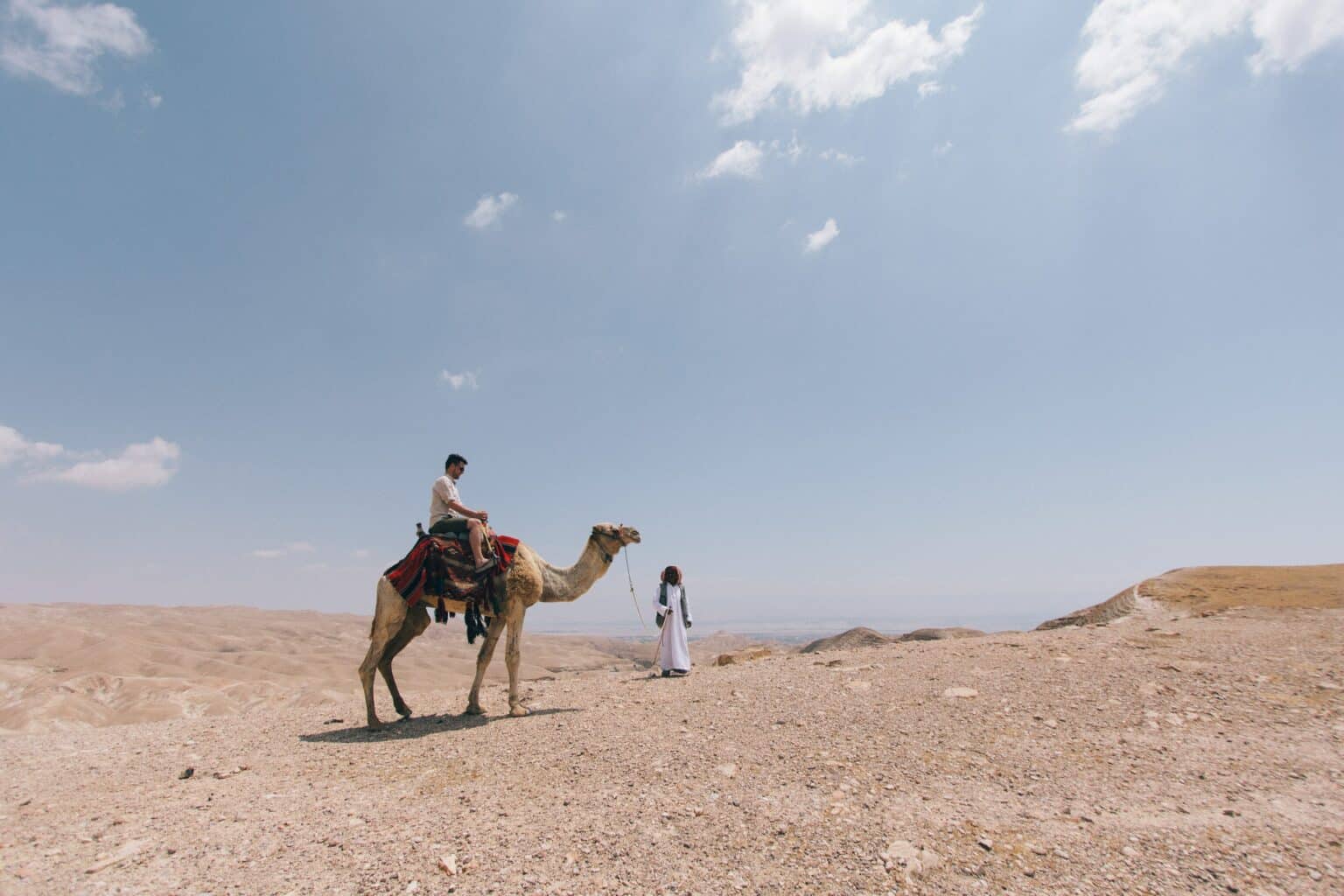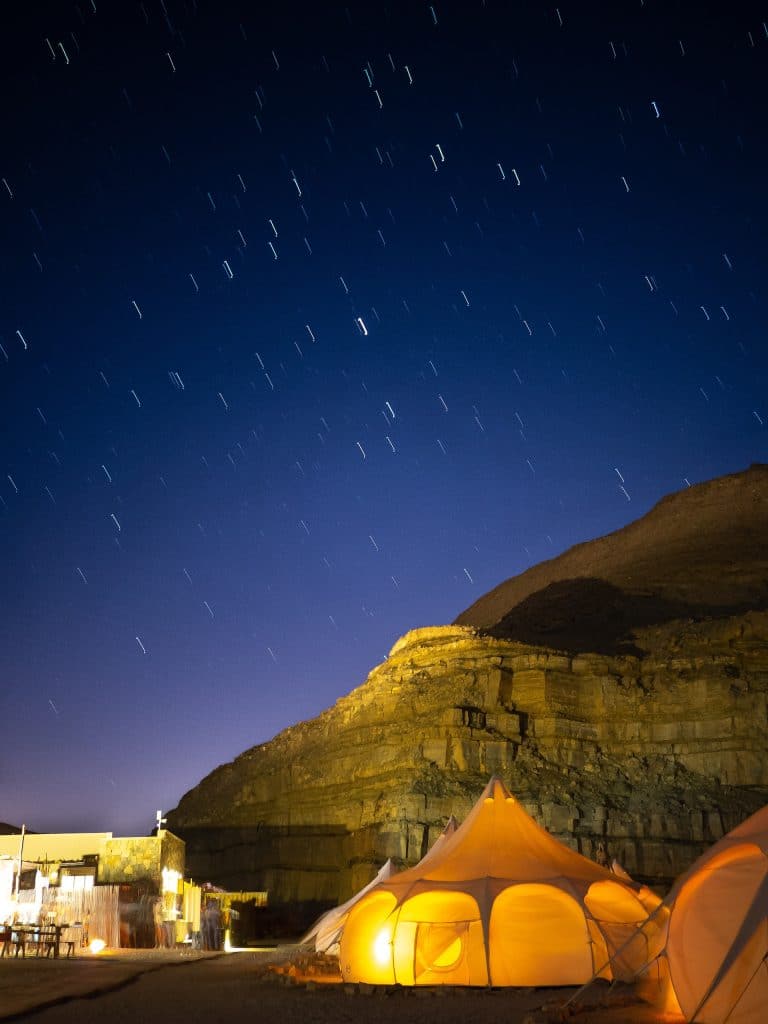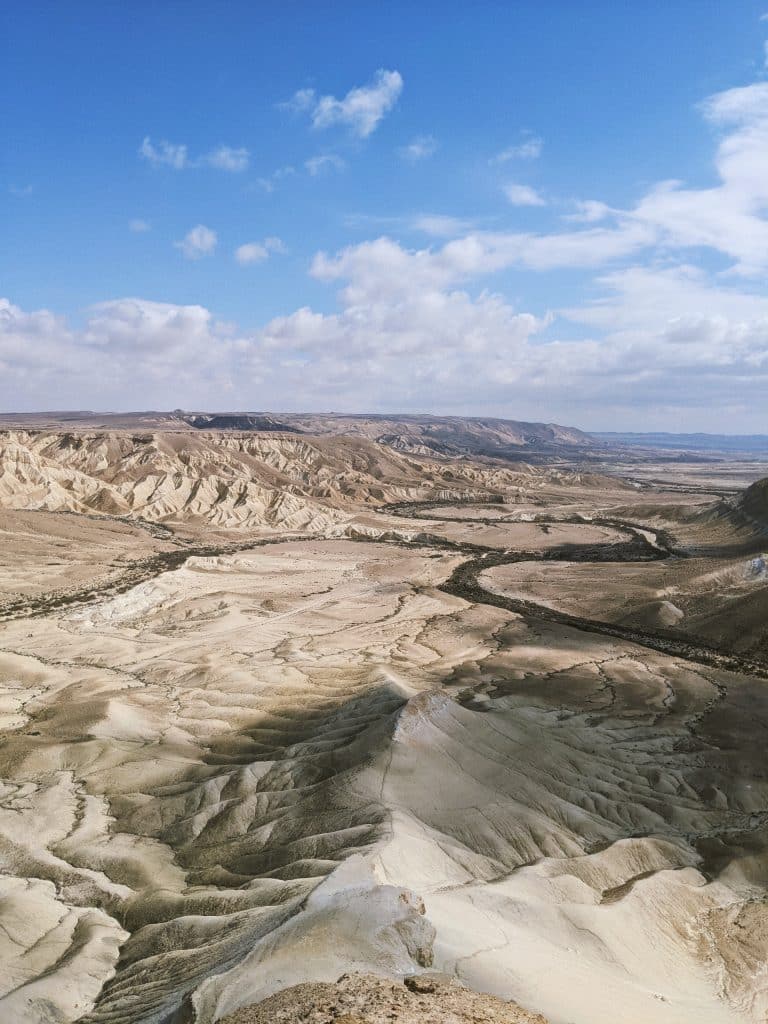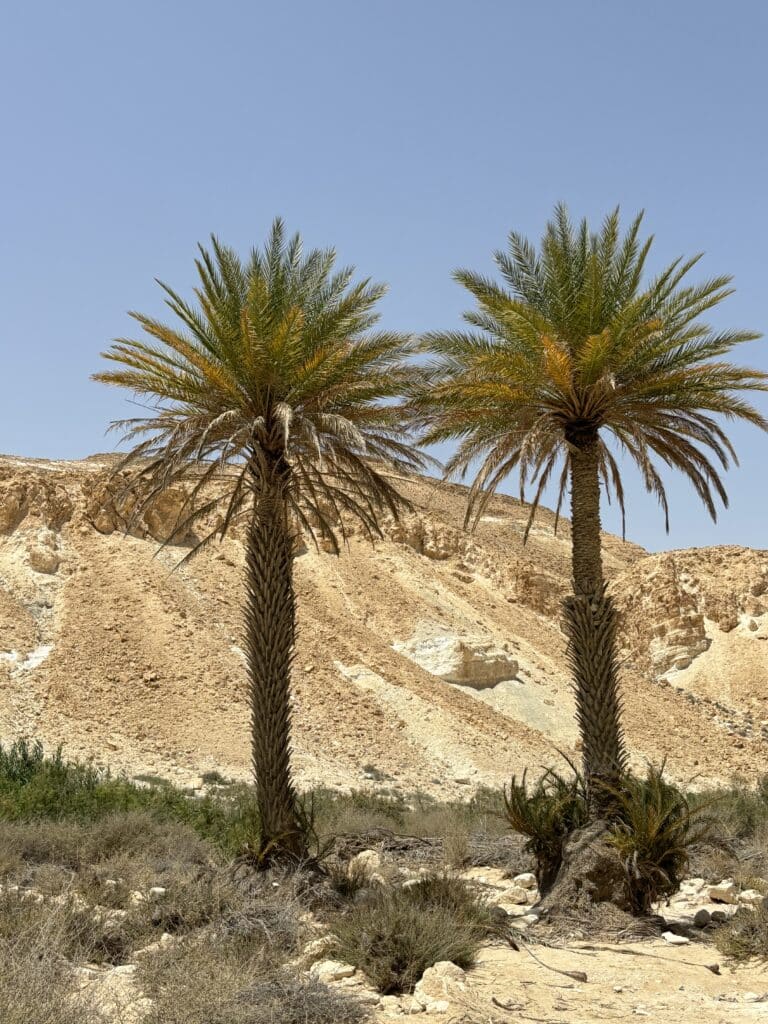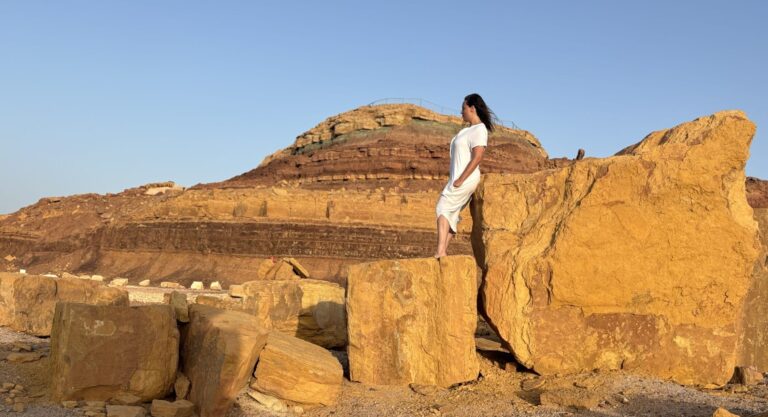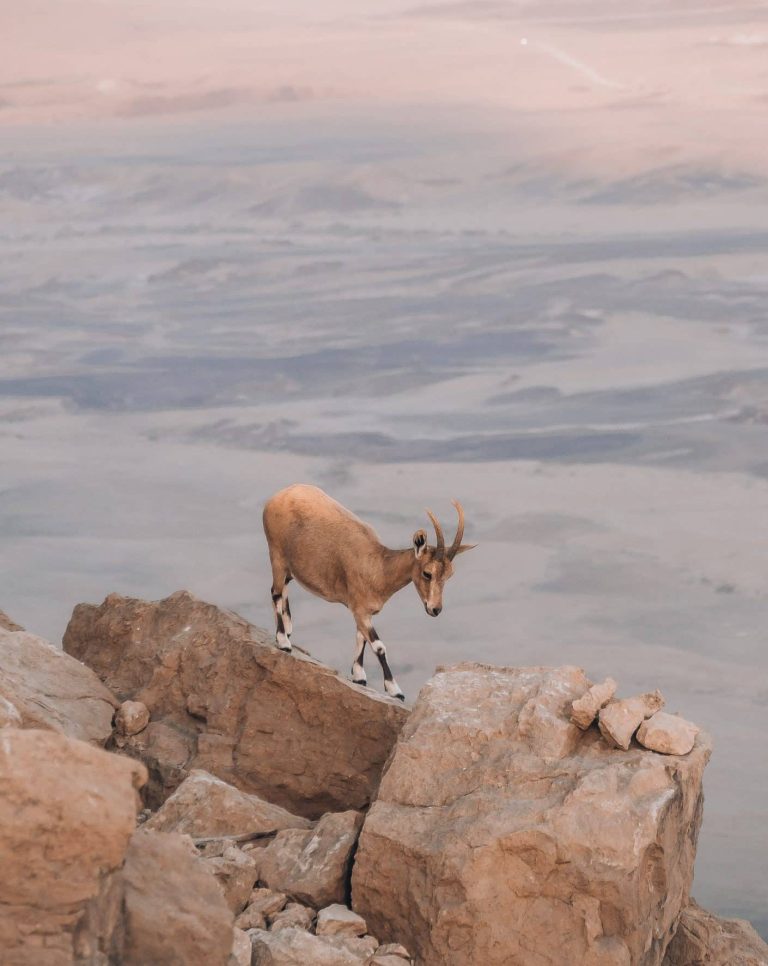The Bedouins in Israel are one of the most unique ethnic groups in the country. As a major part of the population in Southern Israel, visiting the Negev is a great opportunity to immerse yourself in the Bedouin culture, and learn about the unique traditions and history of the eternal nomadic people. Here are some of the most interesting things to know about the Bedouins in Israel, and the best ways to experience this fascinating culture during your trip here.
The Story of the Bedouins in Israel
The Bedouins are one of the Arab ethnic groups in Israeli society that believes in the religion of Islam, and today they make up about 3.5% of Israel’s population.
The Bedouins are Semitic tribes that originated in the Arabian Peninsula, from where they began to spread north to find pastures and living areas. Already in the second century BC, the Bedouins reached the Sinai Peninsula, the Negev regions, the eastern parts of Jordan, and the Syrian desert in their wanderings, and in the fifth century, a few thousand Bedouins settled down in Southern Israel and stayed there ever since.
Generally, the Bedouin population is divided into a few social groups, based on their living conditions. The Bedouins of Israel are divided into those living in permanent settlements, rural and urban, and nomads. In the Land of Israel, there are no longer completely nomadic Bedouins, but only semi-nomadic.
The semi-nomadic Bedouins are characterized by the fact that their area of migration becomes more and more specific and defined, as they have several main camps between which they migrate. Over time, most of them move to a life of permanent agriculture, but they usually move from place to place at least twice a year. As their permanence in their place of residence and their ties with the permanent settlement in their vicinity have increased, they began to build houses, until the Bedouin camp became a regular village.
The Bedouins in Israel today are divided into two main groups:
The Bedouins in the Negev, who are currently numbered at about 292,288 people, including semi-nomads and residents of villages and towns. Alongside them, are the Bedouins in the North, who are currently numbered at about 110,000 people, most of whom live in villages and towns.
Best ways to experience the Bedouin culture
Stay in a real Bedouin Homestay
In the Negev Mountains, in the area between the Sde Boker area and the Mitzpe Ramon area, on Highway 40, you will find a huge amount of Bedouin villages scattered across the road.
Within these villages live, among others, several dozens of hosts, who invite visitors to stay in their homes and get to know the Bedouin way of life, traditions, crafts, and the stories on which they were raised and educated. The Bedouin experience in the Negev Mountains offers a very unique, authentic, and intimate Bedouin accommodation, which cannot be found in other places that offer other kinds of Bedouin accommodation.
Thanks to the fact that this is community tourism, where people open their real homes and camps and host visitors right in their living room or in the tent next to their camp, and not in a khan that only simulates Bedouin life, this is the ultimate way to immerse yourself in the captivating culture.
The Bedouins have very clear rules of hospitality, as they welcome guests unconditionally and with great pleasure. For them, the guest is a messenger of God and is welcomed with open arms. Thus, according to tradition, the guest is not allowed to ask anything from the host, while the host has the responsibility of providing for all his needs, taking care of food and drink for him, and also equipping him with food and drink for the road before he leaves.
During your stay, you will get to experience the unique Bedouin food, including Bedouin coffee and bread, and also get to learn about their use of local plants as spices and natural medications.
The full Bedouin hospitality allows you to combine several experiences in one place or several villages. Besides the accommodation in the camps, the Bedouin hospitality usually also includes a light meal with a local pita and a hot drink, a meat or vegetarian meal, and an explanation of the Bedouin tradition.
Anyway, if you’re interested in this unique experience, it’s important to take into account that this is very basic accommodation and that this experience is not a very luxurious one and is not suitable for everyone.
Visit the Bedouin Museum
The Museum of Bedouin Culture at the Joe Alon Center is a great place for anyone who is looking to get to know the Bedouins and their culture up close through a variety of displays and experiential activities.
This is the only museum in the world that revolves around Bedouin culture, studies it, and preserves it. The center, which has been operating for forty years, has already become a symbol of coexistence between Muslims and Jews, and during your visit here you can see Jewish children playing together with Bedouin children, in the context of different joint activities and events that take place here.
The museum itself is divided into wings where there are many items related to Bedouin culture, history, and daily life. Among other things, you can see agricultural tools, clothing items, authentic carpets, examples of typical Bedouin crafts, displays related to Bedouin tents, and even Bedouin toys. An entire floor is dedicated to the Bedouin spiritual culture, with colorful items and slides that will tell you about Bedouin history, society, traditional medicine, and more.
Outside the building, there is an authentic Bedouin tent, which allows you to get to know the Bedouin culture in a lively and authentic way. On one side of the tent, we will see the shig – the hospitality tent for the men, where you can meet a Bedouin sheikh who will serve you bitter coffee and sweet tea and share Bedouin folklore stories.
On the other side of the tent is the mahram – the woman’s side, with items that refer to the Bedouin woman, her routine, and her crafts, including baking pita bread and weaving carpets.
In addition to these, the complex has a small animal corner, as well as a spectacular view of the area, from which you can see the borders of the State of Israel, the Jewish and Bedouin town in the area, and the Judean Mountains. In addition, there is an art gallery that presents changing exhibitions, as well as a special display dedicated to the First World War, with a special emphasis on the Bedouin context of the war.
Operating hours:
Sunday-Thursday and Saturdays: 9:00-16:00
Fridays and holiday eves: 9:00-14:00
Have an authentic Bedouin meal
If you are interested in a shorter and more convenient experience of the Bedouin culture, you can order a great Bedouin breakfast or dinner, which will provide you with a great glimpse into this unique culture. A Bedouin meal will usually take place either in a Bedouin tent or in a beautiful spot in nature, where you will get to make fire and cook alongside the locals, sample their delicious dishes such as Maqluba and Mansaf, and hear stories about the fascinating Bedouin culture.

